There are many great app development courses available online that will teach you how to build your own apps from scratch, whether for iOS, Android or the web. Though, some of them are quite expensive and can cost you a few hundred dollars. Even if you had that kind of money to invest in your own professional development, you’ll need to be able to devote time too. And, that’s, more often than not, the bigger issue…
What if you could develop your own app quickly without knowing how to code? Sure, there are several great web development agencies that also include app development in their list of services, but that can quickly become expensive as well, especially if you’re an individual creator or a small business. This approach also robs you of that satisfaction of knowing that you’ve done it yourself, a feeling that money can’t buy.
The solution — using a no-code app development service or platform.
Top No-code App Development Services and Platforms for Beginners:
What’s a No-code App Development Service or Platform?
In a nutshell, a no-code app development service or platform is a type of visual software development tool that empowers entry-level developers to build a web or mobile application by dragging and dropping different components. This makes the process a lot less time-consuming and easier as you don’t need to write lines of code. As no coding is required, it also makes the task of creating an app much more accessible, allowing users with no or very little programming knowledge to build a basic app. On top of that, these types of tools can also make it easier for app builders to perform testing.
Basically, these services or platforms let you pick and combine reusable components with each component representing a specific step or function. At least, that’s the gist of it.
We’ve read the reviews and compared the blog articles to present to you the A - Z list (quite literally) of 10 of the best app development tools that require no coding. So, if you need a custom mobile or web app and have a strong desire to create it yourself, but don’t have the skills or experience, here are the top platforms and services to check out.
Top App Development Tools (in Alphabetical Order)
Adalo helps users to turn their startup and side hustle ideas into a reality without any coding. Whether you want to let your users simply browse through content, like projects, or want to give them the opportunity to buy goods and services directly, you can use it to build an app for your content or paid offering. Alternatively, if you want to jump on the bandwagon and create your own social media app, you can use Adalo for that as well. You can create the user interface (UI) of your app by dragging and dropping reusable building components (there are more than 25 great-looking components) and then link the pages of your app together using, for example, customizable animation. It also includes a Stripe integration if you want to add payments directly into your app. Other useful functionality that it lets you add include triggered push notifications that get sent to specific users and the ability to access a user’s photo library or camera. Here are some of the key features: Plans and pricing: It has a free plan if you’re simply interested in playing around and building or testing a few apps. Though, if you want to publish your app (other than to the web), that’s when you’ll get charged. If publishing your mobile applications is your ultimate goal, it offers the following four subscription plans: Not to be confused with PewDiePie, one of the top (and most controversial) content creators, Appy Pie is a no-code platform for app creation. Its following, though, is equally impressive and it’s trusted by more than 10 million customers making it one of the top app makers currently available. Appy Pie’s goal is to make advanced tech affordable to those without advanced tech skills. To put it in simpler terms, their mission is to level the playing field. So, whether you’re a student, freelancer, or business owner, their solutions can be tailored to meet various types of needs and budgets. In addition to an app builder, they also offer a website and chatbot builder, but as the focus of this blog post is on apps, we’ll keep our focus on the capabilities of its app builder. Here’s how it works: This means that unlike many of the other visual building tools you don’t even have to drag and drop different building components. Instead, Appy Pie uses artificial intelligence to turn what you have said or written into a functional app. Here are some of the key features: Plans and pricing: It offers three subscription plans and an enterprise plan. Pricing works as follows: According to their LinkedIn page, AppGyver was the world’s first, professional, no-code platform for building apps for mobile as well as desktop, browser, and TV. Trusted by more than 300,000 users, it offers intuitive, business-driven tools to help you create apps quickly. Its Composer Pro offers countless style properties and intuitive, drag-and-drop controls. You can basically create anything that you want by combining hundreds of logic functions. And, if you don’t find the component that you’re looking for among its 500+ core building blocks, you can always create your own new component that you can then also share with the rest of the community. Here are some of the key features: Plans and pricing: It was recently acquired by SAP and so they’re in the process of updating their pricing. According to one of their blog posts, they plan on offering a free tier and making new features available to paid users. Though, there will be a trial period and the pricing will keep smaller companies’ budgets in mind. Founded in 2012, Backendless is a full-stack, visual app development platform that requires no coding. It’s been created to streamline the mobile app development process, helping users, that include big names like Columbia, Kellogg’s, and Dell, to save loads of time and frustration. The platform has a visual, no-code, user-interface builder. Using its drag-and-drop features, building the front end for your app (or site) is a straightforward task. What’s more, you can use it for apps intended for web, mobile, or both. Though, if you do get stuck, it offers several video tutorials to walk you through the process and help you find your way along the builder and its features. They also offer a library with how-to guides (or as they like to call them recipes). Here, you’ll also find more info about the platform’s impressive functionality. Here are some of the key features: Plans and pricing: It offers a free plan and three subscription plans: Cloud 9 ($35 per month), Cloud 99 ($149 per month), and Cloud Enterprise ($999 per month). Founded in 2016, Betty Blocks is a citizen development platform that makes it easy, fast, and fun to build intricate, enterprise-grade apps. Their goal is that everyone should be able to build apps together by 2023. For example, they helped Zorg van de Zaal, a corporate healthcare provider and well-being and lifestyle consultants, to create a new app that they could use to invite employees, document exams, and share personalized questionnaires. The end result — cutting scheduling times in half. Whether you’re a citizen developer or an enterprise organization, you’ll find it’s easy to use. To build an app, you’ll use its visual, drag-and-drop interface and pre-programmed building blocks. While its flexible UI-builder is highly intuitive, it’s not at the expense of functionality and you can use it to develop even complex apps. And, if you’re familiar with JavaScript, it also supports JavaScript and HTML integrations for extra customization. So, unlike a tool like AppSheets that’s only suitable for building simple apps, Betty Blocks lets you create advanced apps too. What’s more, they also offer a great degree of support for if you should get stuck. You’ll have a personal contact with their team and they can provide training too. Plans and pricing: After a free trial, you can either sign up for the Standard or Enterprise plan. For more information about the pricing, you’ll have to reach out to Betty Blocks directly. If you specifically want to build web apps as opposed to mobile apps, you can check out Bubble. Trusted by millions, it’s one of the most popular no-code platforms that you can use to create powerful apps for desktop and mobile web browsers without having to write any line of code. Using its drag-and-drop editor, you can build interactive, multi-user apps that include real-time interactivity, like chat, news feeds, and maps.Then, to make sure that your app displays perfectly in mobile browsers, it offers mobile-friendly layouts and a responsive editor. You can also use it to create user accounts and support log-ins with passwords, making it a great tool to use if you want to manage data and accounts. And, if user-generated content (UGC) forms a big part of your digital marketing strategy, you can also use it to display UGC. If you cater to a diverse, global audience, why not create a multilingual app? With Bubble, it’s really simple. Bubble currently supports more than 80 international languages and so it can translate any text used in your app and display it automatically in the right language (or currency for that matter). Then, to keep track of how your newly built app is performing, it offers useful analytics that you can track via its powerful dashboard. Here are some of the key features: Plans and pricing: Bubble offers a free plan and three subscription options: Personal ($25 per month), Professional ($115 per month), and Production ($475 per month). Half a million businesses and individual users have turned to Glide for app development and their no-code platform has been used to create more than a million apps already. As it’s a no-code platform, you don’t need to write a single line of code to create a powerful app, making it a great choice for newbies to coding. With the help of its intuitive building blocks, you can turn your data into an app that will look beautiful across iOS and Android devices, including tablets. What’s more, data will be synced in real time which means that you can rest assured knowing that your app will always be up to date. If you want to make your app available to more than just your employees, Glide also gives you the option to make it public so that users from all across the world can use it. Then, to customize the experience for different users, it gives you the ability to store data in a user’s profile. Though, unlike other platforms that might help you to publish your app on, for example, the App Store, apps created via Glide are shared as a simple web link instead. This means that users don’t need to download and install your creation first. Plans and pricing: It offers a free plan, three paid plans, and custom pricing for enterprise clients. Pricing starts at $25 per month. While Google and many of its other products such as Google Docs need no introduction, you might not know that it also offers a no-code app solution. As a matter of fact, it’s been used to create over 4 million apps already. From project management tools to sales solutions, it can be used for various use cases. Plus, it works great on both mobile and desktop devices. As it’s a true no-code platform, anyone (even users without any prior programming experience) can use it to create an app or automate processes. Its AppSheet Editor will create app prototypes automatically as well as share some suggestions for how you can customize it quickly. To test it out, all you need to do is to connect AppSheet to your cloud data storage provider, like Google Drive or Salesforce. Then, open the spreadsheet or database that you want to use for your app, specify how the data should be used, create a view, and customize your app’s look and feel by selecting things like color schemes and themes. After you’ve built your app, you can invite users to test your app. All that’s then left to do is to deploy it and it will be live and ready. Plans and pricing: While you can use any Workspace account to create basic apps and share it with a small team, you’ll need an AppSheet subscription to share it with a bigger team and for more heavy-duty needs. Pricing starts at only $5 per user per month. Thunkable is used by millions of creators to turn their ideas into an app for Android, iOS, and the web. To date, more than 7 million apps have been created with the help of their all-in-one, no-code, app development platform. All in all, it’s a great tool if you want to take your products or services to mobile and implement a mobile-first approach. It offers a simple, yet pretty powerful, drag-and-drop design canvas, more than 50 design components, straightforward animations, and limitless logic blocks. Publishing your new app is also a breeze thanks to its direct deployment capabilities for Apple’s App Store, Google Play, and the web. What’s more, they’ll also take care of all app marketplace compliance matters which means that you don’t even have to worry about that challenging aspect. Here are some of the key features: Plans and pricing: It offers a number of personal and business plans, including a free plan. Pricing works as follows: For more pricing information about the Team and Custom plans, you’ll need to reach out to Thunkable directly. Chances are good that you’ve heard or read about Zapier before. If you’ve been shopping around for software solutions like social media management platforms, integration with Zapier is one of the popular features that you’ll see. It connects with more than 4,000 of the most popular apps which is the biggest list of connections offered by a platform. Launched in 2011 and trusted by well-known, global names like Slack, Asana, and Meta, Zapier is a cloud integration software solution that you can use to integrate apps, like Dropbox and Salesforce, so that you can get data moved automatically. In other words, if you have multiple apps, you can use Zapier to connect these two app platforms and build something yourself using their no-code, point-and-click Zap Editor. Plans and pricing: It offers a free plan and various subscription plans. After a free, 14-day trial, pricing works as follows when billed on a month-to-month basis:1. Adalo
2. Appy Pie
3. AppGyver
4. Backendless
5. Betty Blocks
6. Bubble
7. Glide
8. Google AppSheet
9. Thunkable
10. Zapier
Wrapping Things Ups
Hiring professional developers to build a custom app isn’t something that everyone can afford, especially not if you’re a creator or small business. However, depending on your niche, not having your own app is also something you can ill afford. The app industry has exploded and, according to online stats about mobile app usage, branded apps can generate more interaction than sponsored social media posts. What’s more, over 20% of internet users have revealed that they discover new brands, products, and services via mobile apps.
Luckily, there are a number of solid no-code development platforms aimed at users with no (or limited) knowledge of programming languages. Plus, as most of these no-code tools offer drag-and-drop capabilities, even non-technical users will be able to understand it.
Frequently Asked Questions
Which is the best no-code app builder?
Top 10 no-code development platforms for beginners:
- Adalo
- Appy Pie
- AppGyver
- Backendless
- Betty Blocks
- Bubble
- Glide
- Google AppSheet
- Thunkable
- Zapier
Are no-code app builders worth it?
No-code app builders can help reduce cost. Traditional application programming is expensive, and custom builds can take time for professional developers. Some estimates say no-code app builders can save up to 74% of the total cost.
Can you build an app with no-code?
You don’t need to know how to code for app development. Anyone can build an app without coding skills. You need to find the right app builder for your needs. Then you need to learn the platform, add your features and customize the look and feel of your app.
What is no-code app development?
No-code developement is a new type of web development that helps non-programmers and programmers to build software with an intuitive graphical user interface – instead of writing code.

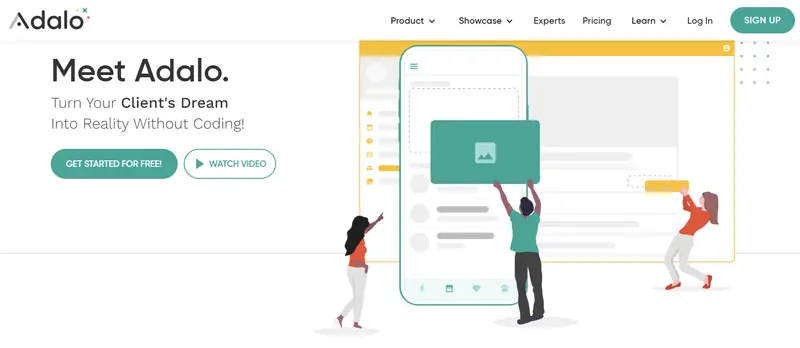
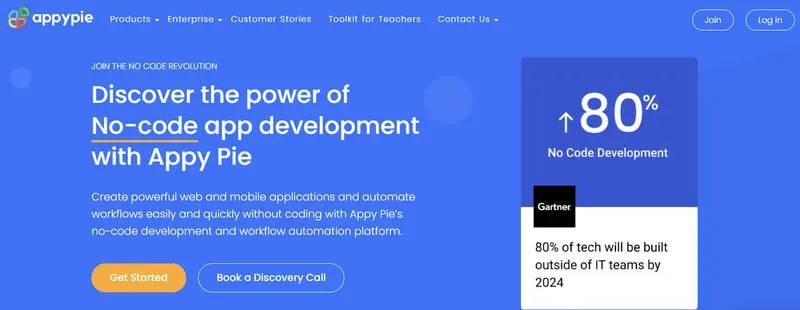
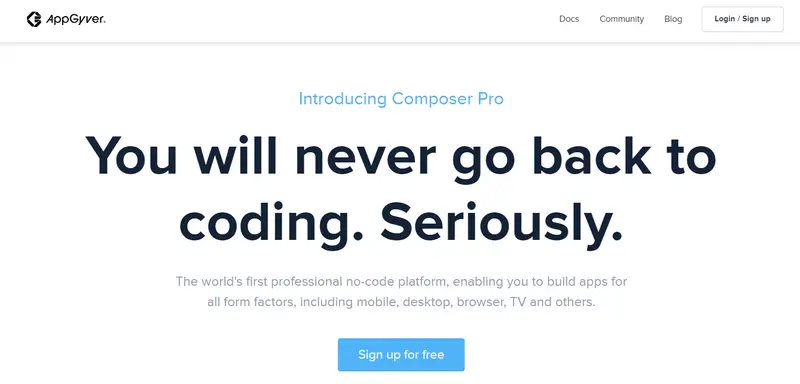
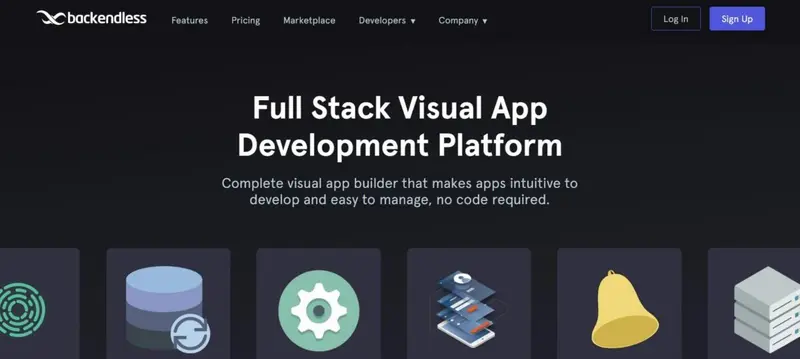
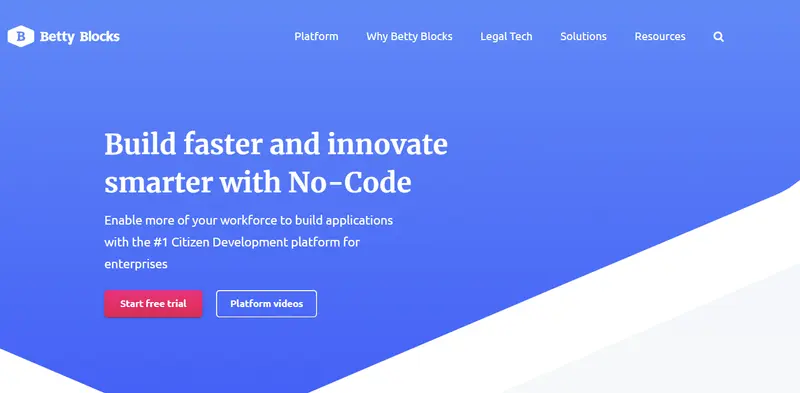
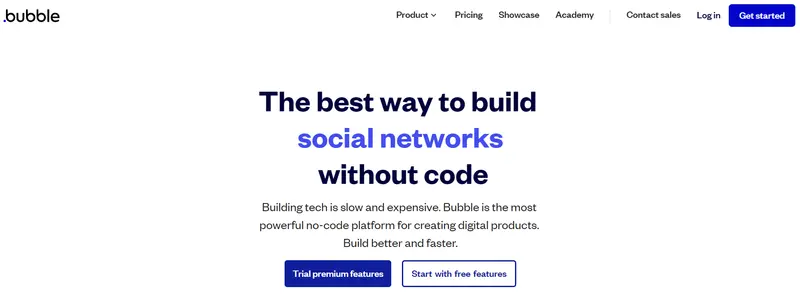
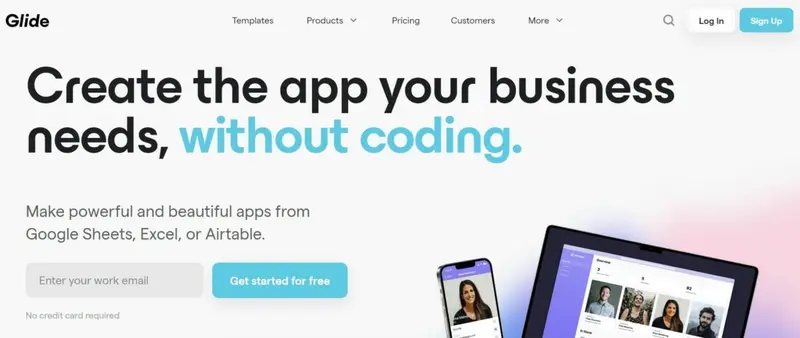
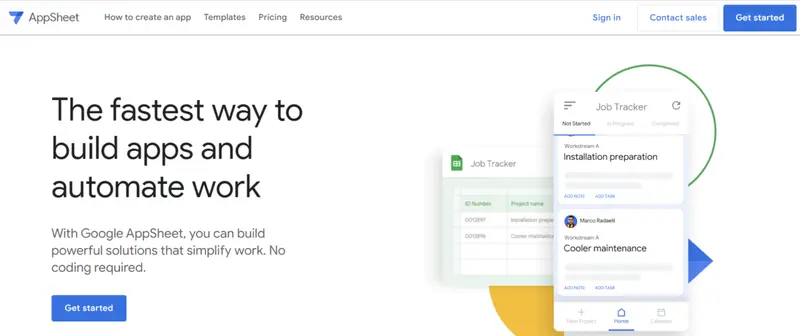
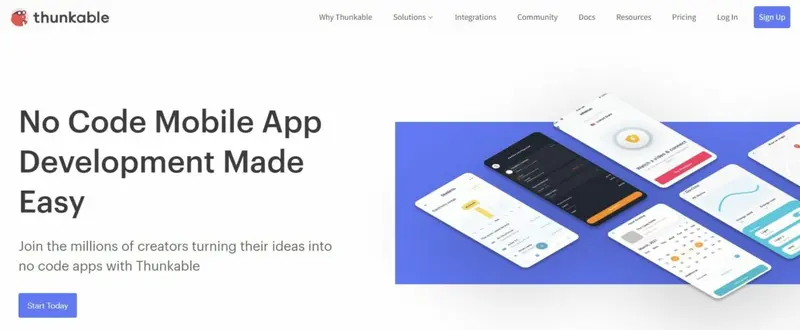
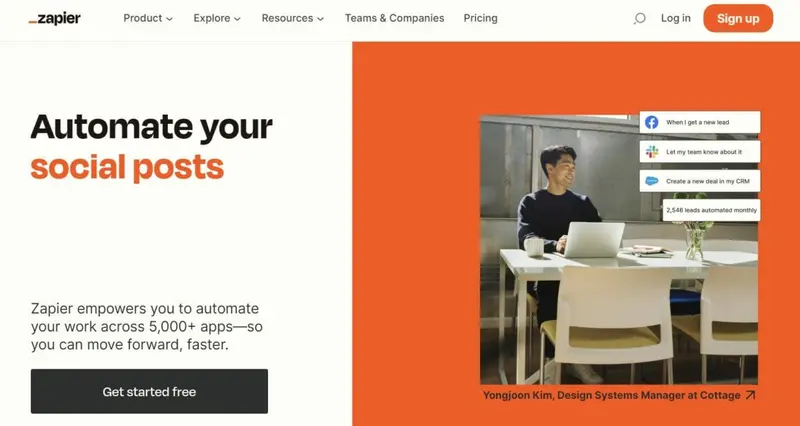
![10 of the Best iOS App Development Courses [Paid and Free]](https://s.influencermarketinghub.com/imaginary/resize?width=400&height=200&type=webp&url=https://influencermarketinghub.com/wp-content/uploads/2022/09/Top-10-ios-App-deveopment-courses.png)

